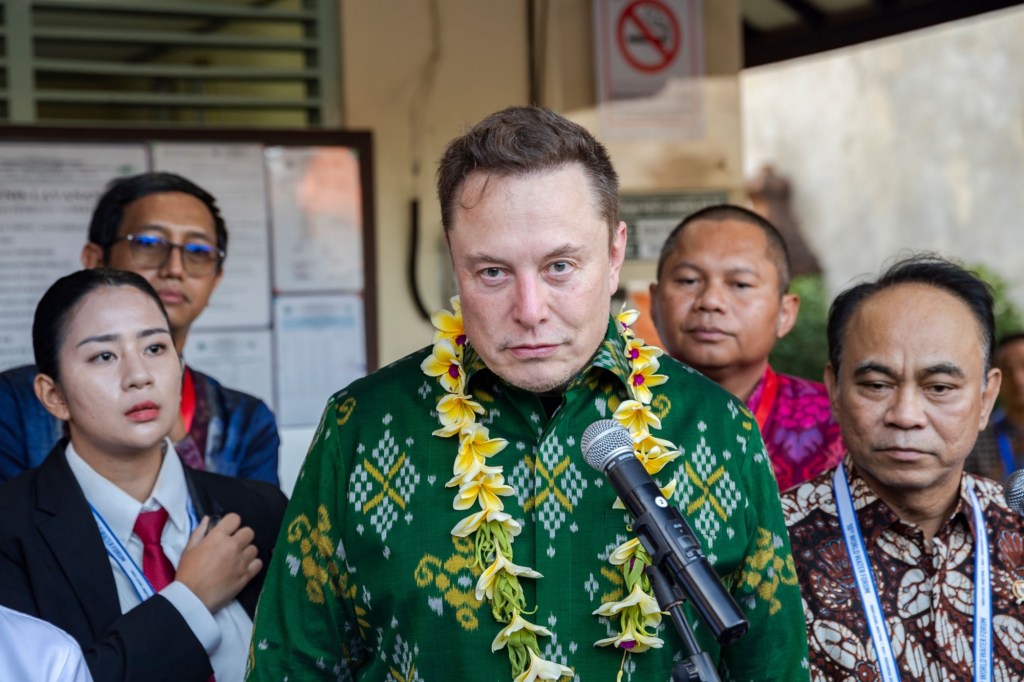Nine days ago, Twitter CEO Parag Agrawal was merrily announcing that the social media platform was “excited” to bring Elon Musk onto its board, saying in a tweet that he believed the CEO of Tesla and SpaceX would “bring great value” to the company.
Even then, this was a clear attempt to placate Musk, after he had purchased enough Twitter stock to become both its largest shareholder and its biggest threat.
Videos by VICE
But by Thursday, the prospect of any future attempts at disingenuous niceties had washed away, as Musk revealed (in a tweet, naturally) that he had submitted a takeover bid to buy the rest of Twitter at a $43 billion valuation and then take it private.
“I do think this will be somewhat painful,” he said during an interview Thursday.
In defense, Twitter is now reportedly rushing to figure out a “poison pill” strategy to stop Musk from owning much more of the company than he already does. Investors also seem to be taking sides. One of the company’s other largest shareholders, Saudi Arabian investor Prince Alwaleed bin Talal, already said Thursday that Musk’s bid did not come “close to the intrinsic value of Twitter.”
Do you work at Twitter? From a non-work device, contact our reporter at maxwell.strachan@vice.com or via Signal at 310-614-3752 for extra security.
Hours after revealing his Twitter takeover bid, on Twitter, Musk took the stage of TED2022 in Canada, where the world’s richest human attempted to portray his hostile takeover bid of social media platform not as the actions of an aggrieved man with a personal vendetta and a need to be admired by the bored journalists who dominate Twitter, nor those of a capitalist attempting to increase his wealth, but as a righteous attempt to protect free speech and the future existence of humanity.
He told Chris Anderson, the head of TED, that he made the bid not for financial reasons—“I don’t care about the economics at all,” he said—but because he believes Twitter is important to a functioning democracy.
“Civilizational risk is decreased the more we can increase the trust in Twitter as a public platform,” he said. “Having a public platform that is maximally trusted and broadly inclusive is extremely important to the future of civilization.”
Musk did not address in detail the ways in which “free speech” has historically implied freedom to not be imprisoned for saying things, rather than freedom to say things without anyone raising objections. He also didn’t address in detail the ways in which being “broadly inclusive” can amount in practice to allowing internet users to freely post pictures of their genitals or advise parents on how to feed their babies bleach, or address tensions between broad ideals and the practical realities of owning a website.
He instead suggested a series of tired ideas, like creating an edit button (and potentially getting rid of favorites and retweets); leaning on “timeouts” instead of “permanent bans”; and making the Twitter algorithm open source with “no behind-the scenes manipulation, either algorithmically or manually,” a long-time conservative bugaboo.
Internally, Twitter employees are reportedly “panicked” over the situation, which they will discuss at a Thursday afternoon all-hands meeting, according to Reuters. Prior to Musk’s bid, Rumman Chowdhury, Twitter’s director of machine-learning ethics, transparency, and accountability, had been asked if she feared a hostile takeover by Musk.
“It would be interesting to see how he’d run a company with no employees,” she wrote in response.
On Wednesday, Musk wrote a letter to Twitter chairman Bret Taylor in which he revealed his decision to submit a takeover bid, saying that he while he believed Twitter could serve as a global “platform for free speech,” he had determined that the company could not “thrive nor serve this societal imperative in its current form” and subsequently needed to be “transformed as a private company,” according to an SEC filing that included the letter.
“My offer is my best and final offer and if it is not accepted, I would need to reconsider my position as a shareholder,” Musk wrote.
“This is not a threat,” he also said, according to a transcript of a voice script in the same filing. Ann Lipton, a law professor at Tulane who studies business and securities, said it in fact was, and that it could potentially be used by Twitter as “legal cover for refusing the offer.”
Twitter’s previous decision to bring Musk on the board had appeared to be a Succession-like attempt to hogtie one of the world’s most vocal proponents of the edit button. Should Musk have taken the board seat, he would have been effectively banned from taking the company over for approximately two years, as the proposed agreement required him not to increase in the company beyond 14.9 percent through the company’s 2024 annual stockholder meeting. It also would have meant he had a fiduciary duty to “act in the best interest of the company,” as Agrawal had said Sunday.
He ultimately decided that wasn’t a good enough deal for him, said no, and started crafting his plans for the takeover. As with all things Musk-related, theories as to his motives have already started to pile up. Mark Cuban, for one, has suggested that Musk isn’t serious about taking over the company and that he simply wants to juice the share price.
No one knows—not Agrawal, and maybe not even Musk. What’s clear is that this is not close to over. At one point in the TED interview, Anderson asked Musk if there was a “Plan B” should his attempt to take over Twitter fail.
Without going into specifics, he replied, “There is.”
More
From VICE
-

Photo by Spencer Platt/Getty Images -

Dockworkers at the Port of Miami on the first day of the Longshoremen's strike. Photo by CRISTOBAL HERRERA-ULASHKEVICH/EPA-EFE/Shutterstock -

Elon Musk discussing Starlink in Indonesia. Photo by MADE NAGI/EPA-EFE/Shutterstock. -

Kendrick Lamar announces his Super Bowl LIX halftime show via YouTube.
